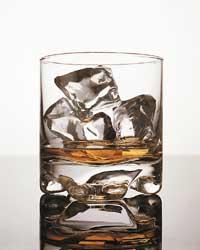Is alcohol good for health?

Alcohol consumption is something that occurs in all societies, but the consumption patterns of alcoholic beverages vary from country to country (how, when, where, and how much is drunk). Each culture drinks in its own way. Among us, for example, the regular consumption of alcoholic beverages is related to leisure and social relations.
On the other hand, in Spain (and also in the Basque Country) alcohol consumption is extremely high, attending to indices from all over the world, but unlike other countries, alcohol consumption is a social custom that is not as bad seen as elsewhere. That's why it's hard to understand and recognize that alcohol consumption can generate problems (within the family, social, medical, etc.) Even when they are evident, they refuse or show a great tolerance towards them.
And it will not be because the harmful effects of alcohol have not been studied, much less. In fact, alcohol consumption is one of the most important causes of death today. Among us 6 out of 100 deaths are due to alcohol and most of them to organic pathology (infarction, hypertension, etc.) and are produced by direct psychiatric, rather than by the continued consumption of alcohol that has been given for a long time.
Cardiovascular effect of alcohol consumption
Although these figures are undeniable, it is also true that there is much talk about the benefits and benefits that alcohol can bring to certain diseases, especially cardiovascular, and that is why I would like to work especially at this point.
In Europe, cardiovascular diseases account for more than 50% of the causes of death, in which coronary heart disease and strokes seem to prevail. In Spain, however, as in France, the incidence of coronary artery disease is lower than in other neighbouring countries. Why?

On the other hand, numerous studies have shown that among people who moderately consume alcohol (10-30 g of alcohol per day, i.e., 1-3 glasses of wine or 1-3 beers per day) the risk of coronary heart disease is lower than among those who do not drink anything. And in these people the least of all is cardiovascular risk
It should also be clarified that alcohol consumption above is no more beneficial, as deaths from other alcohol-related causes increase considerably (accidents, certain cancers, etc. ). ).
Finally, it should be noted that the potential beneficial effects of alcohol occur in certain age groups. In young people, under 40 in men and under 50 in women, this beneficial effect of alcohol is not allowed, since it increases the number of deaths due to other causes (traffic accidents are the main cause of this age).
Are all alcoholic beverages the same?
Although this debate is fashionable, there is currently not enough evidence among the different types of alcohol, and even less among the different alcoholic beverages, to be able to say that there are differences.
The differences between the different alcoholic beverages are in the concentration of ethanol and non-alcoholic components (sugars, minerals, vitamins, polyphenos, etc.) On the other hand, in the differences between the two. It is known that in the laboratory, wines, and especially dyes, have high concentrations of polyphenol, with antioxidant action on the LDL, slowing and slowing the process of arteriosclerosis. But there is still no research that has shown it in living things, in people.
On the other hand, the consumption of wine is always related to the Mediterranean diet. Several studies have shown that the consumption of fruit, vegetables, carbohydrates and unsaturated fats is associated with the reduction of cardiovascular diseases.
Therefore, and at a global level, and above the cardiovascular benefits or benefits that low alcohol consumption can report to certain people, it should be noted that the consumption of alcoholic beverages is related to other health damages and that all the medical recommendations that can be made about alcohol consumption should be made with care and care, always in an individualized way. To think that alcohol consumption in general is beneficial to health is a mistake.
Possible protective mechanisms of alcohol

Two can be the possible protective mechanisms of alcohol against cardiovascular disease: the effect on arteriosclerosis and its effect on aggregation.
Possible condition to arteriosclerosis
The mechanism is still not very clear, but alcohol seems to influence plasma lipoproteins, increasing the cholesterol associated with high-density lipoproteins (HDL cholesterol or "good cholesterol") and decreasing the cholesterol associated with low densities (LDL or "bad" cholesterol). This, instead of hardening and hardening the arteries, when cholesterol builds up on their walls, would still be flexible and elastic.
Condition to your aggregation.
The other mechanism of cardiovascular protection acts on the circulation and everything points to alcohol reducing the aggregation (or additionality) of the platelets, delaying the coagulation and the formation of thrombi. In other words, the blood would always keep flowing and circulate easily through the blood vessels.





